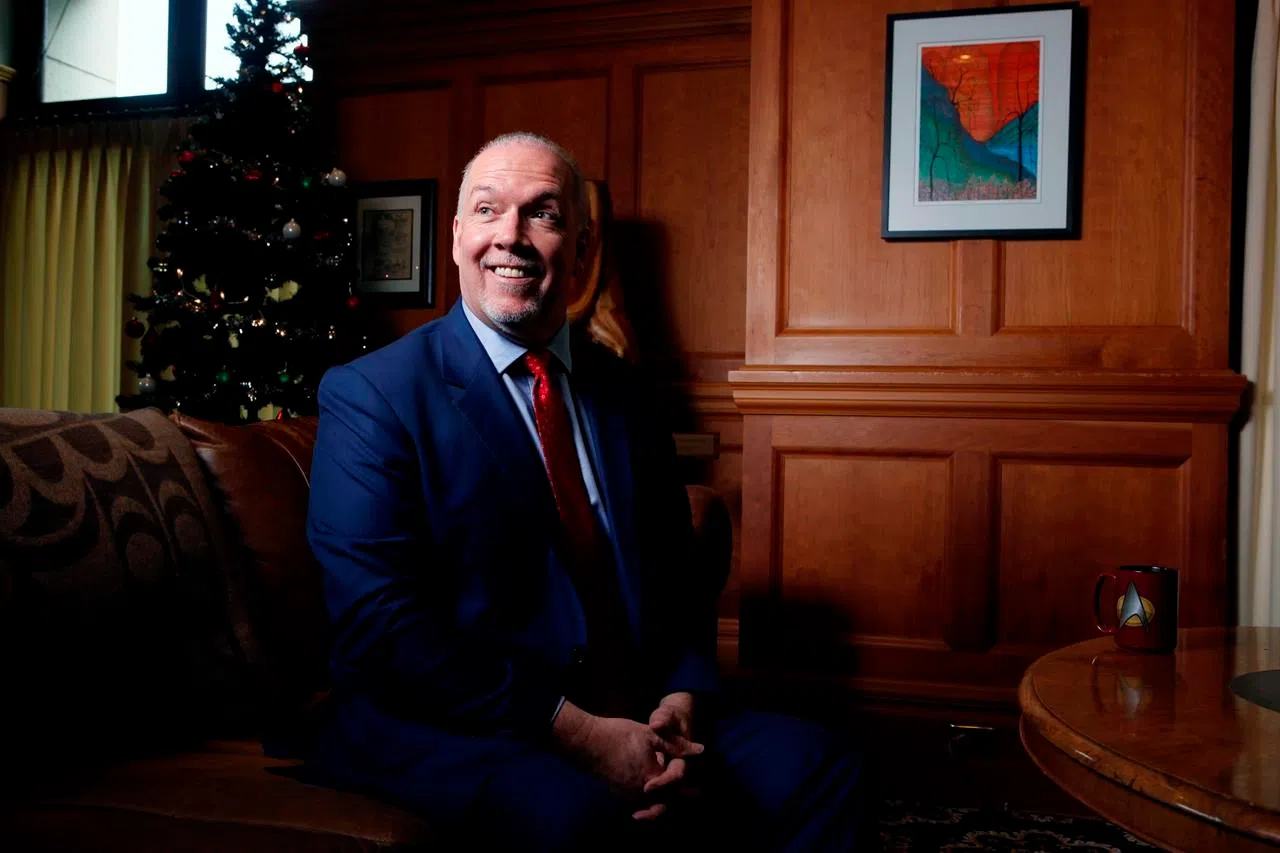
Horgan says next year’s electoral reform referendum likely B.C.’s last attempt
VICTORIA — A pact with the Green party that allowed the NDP to form a minority government in British Columbia is a working example of electoral reform ahead of a referendum on the issue next year, Premier John Horgan says.
There have been a few bumps in the agreement between the New Democrats and Greens since last May’s tumultuous provincial election, but Horgan said in a year-end interview the disagreements are just further proof that such an electoral model can work.
The government passed legislation setting the stage for a provincial referendum by Nov. 30, 2018, that will ask residents if they support changing the voting system to a form of proportional representation in time for the next election in 2021.
The mail-in vote would require a 50 per cent plus one margin of support to be successful.
